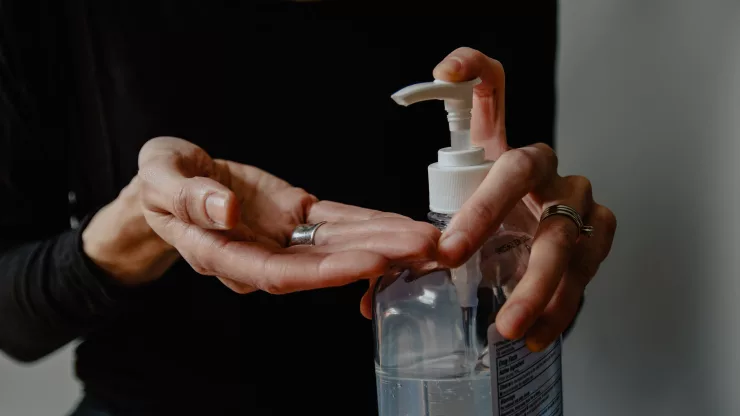The Importance of Good Hygiene
Good hygiene is not just about looking good; it is about feeling good and staying healthy. It is the foundation of a happy and healthy life.
Good hygiene habits such as washing hands, brushing teeth, and taking showers are essential in preventing the spread of germs and diseases.
Hygiene is not limited to physical health only; it also has an impact on mental health.
Jump to Section
Benefits of Good Hygiene: A Happier and Healthier Life
Good hygiene habits have numerous benefits, including a healthier body and mind. Here are some of the benefits of good hygiene:
- Prevents the spread of diseases and infections
- Improves physical appearance and boosts self-esteem
- Reduces the risk of dental problems
- Enhances mental health and reduces stress levels
- Promotes better sleep
- Boosts productivity and concentration
By practicing good hygiene habits, you can improve your overall health and well-being and enjoy a happier and more fulfilling life.
Daily Hygiene Habits: Simple Steps to Improve Your Well-being
Incorporating good hygiene habits into your daily routine is easy and can have a significant impact on your health and well-being. Here are some simple steps you can take:
- Wash your hands regularly with soap and water for at least 20 seconds
- Brush your teeth twice a day and floss regularly
- Take a shower or bath daily and wear clean clothes
- Use deodorant to prevent body odor
- Trim your nails regularly
- Clean your living space regularly to prevent the buildup of dust and germs
By making these habits a part of your daily routine, you can improve your overall hygiene and enjoy a healthier and happier life.
Hygiene and Mental Health: The Connection You Didn’t Know
Good hygiene habits not only improve physical health but also have a significant impact on mental health. Poor hygiene habits can lead to anxiety, depression, and low self-esteem.
On the other hand, good hygiene habits can boost self-esteem and reduce stress levels.
By taking care of your physical health, you can improve your mental health and well-being. Good hygiene habits can also help you feel more confident and improve your social interactions.
Hygiene Tips for Different Age Groups: From Children to Seniors
Good hygiene habits are essential for people of all ages. Here are some hygiene tips for different age groups:
- Children: Teach children to wash their hands regularly, brush their teeth twice a day, and take a bath or shower daily.
- Teens: Encourage teens to take care of their skin by washing their face regularly and using sunscreen. Also, teach them to practice safe sex to prevent the spread of sexually transmitted infections.
- Adults: In addition to the daily hygiene habits, adults should get regular check-ups with their healthcare provider and get vaccinated to prevent diseases.
- Seniors: Seniors should pay extra attention to personal hygiene to prevent infections and falls. They should also get regular check-ups and screenings to maintain their health.
By practicing good hygiene habits at every stage of life, you can maintain your health and well-being.
Conclusion: Make Good Hygiene a Priority for a Better Life
Good hygiene habits are essential for maintaining physical and mental health. By incorporating simple habits such as washing hands, brushing teeth, and taking showers into your daily routine, you can enjoy a happier and healthier life.
Remember to teach good hygiene habits to children and encourage others to practice good hygiene as well. Make good hygiene a priority for a better life.
FAQ
What are some common hygiene myths?
Some common hygiene myths include:
- Using hand sanitizer is better than washing hands with soap and water.
- The five-second rule is true, and it is safe to eat food that has fallen on the floor.
- Sharing personal items such as towels and razors is safe.
These myths are not true and can lead to the spread of germs and diseases.
How often should I shower?
It is recommended to shower or bathe daily, especially after exercise or sweating. However, the frequency of showering may vary depending on individual needs and preferences.
What is the best way to prevent the spread of germs?
The best way to prevent the spread of germs is through good hygiene habits such as washing hands regularly, covering your mouth and nose when coughing or sneezing, and avoiding close contact with sick people. It is also important to get vaccinated to prevent the spread of diseases.

With a deep passion for personal development, Ben has dedicated his career to inspiring and guiding others on their journey towards self-improvement.
His love for learning and sharing knowledge about personal growth strategies, mindfulness, and goal-setting principles has led him to create My Virtual Life Coach.
Contact Ben at [email protected] for assistance.




